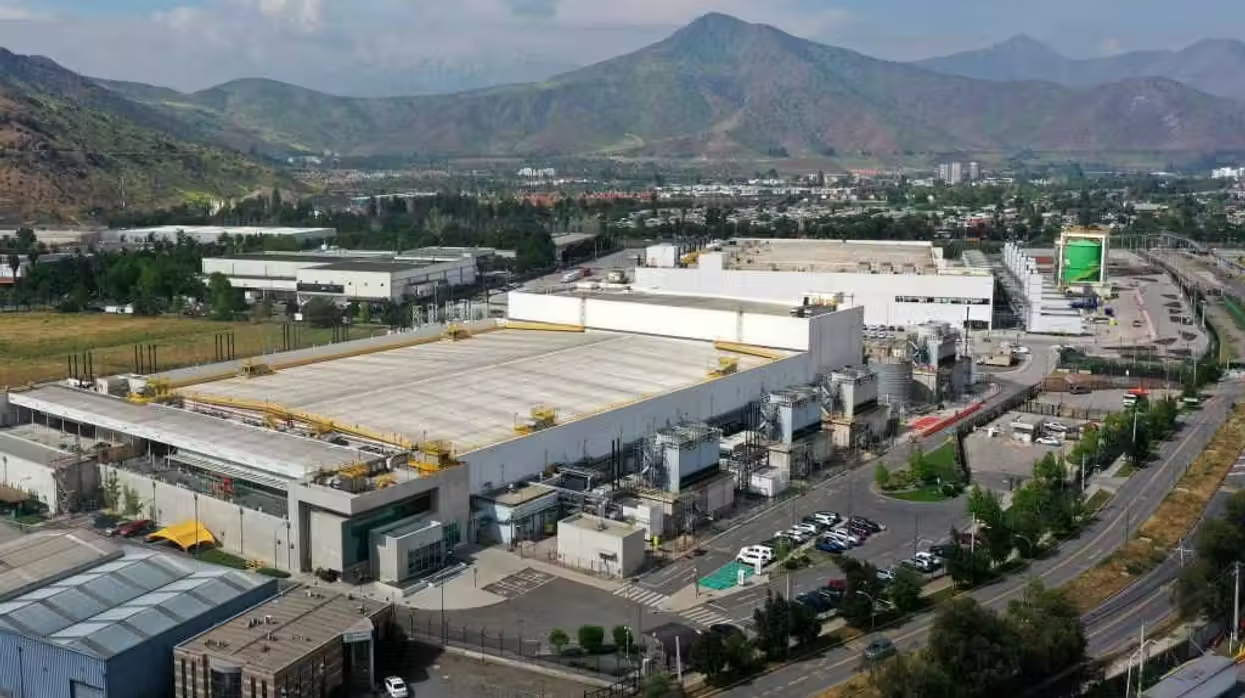
Photo by Rodrigo Arangua/Getty Images

The truth about the resource-hungry compounds isn't stranger than fiction, but it's a lot harder to stop.
While Microsoft just scrapped plans for a massive data center in Caledonia, Wisconsin, due to local pushback regarding environmental concerns, a multitude of other data center construction projects riding the general push to terraform the modern human environment in the U.S., and abroad, are proceeding apace.
“Based on the community feedback we heard," Microsoft said in a statement reported by the Milwaukee Journal Sentinel, "we have chosen not to move forward with this site.” The community feedback, however accurate, was filtered through several layers of local and regional government zoning bodies including Caledonia Plan Commission, which is advising Microsoft go ahead with a separate data center nearby. The second site occupies 244 acres and would see the compound situated near a local power plant.
The push toward more and more power is one of several critical environment components in the seemingly endless project to expand data centers everywhere. Increasingly, we’re seeing tech giants like Microsoft and Google locate projects near existing power plants or just opting to build their own on site. The strain on the grid is reflected in surging electrical rates around the U.S.
People can still have some sway ... if they can get informed and insert themselves into local discussions.
If we take Oregon as an example, we see some interesting and contradictory trends. On the one hand, Oregon has long prided itself at the citizen and local-government level on "doing the work" to ensure some reasonable environmental protection. It hasn’t been a total success; citizens and small businesses have bent over backwards since the 1970s to make accommodations. Isn’t it curious, then, with respect to the question of who pulls the strings in the state, to observe that electrical rates for most citizens have gone up 50% in the last few years? That price hike will continue. Estimates vary, but it appears that Oregon is devoting approximately 11% of its power generation to big tech data centers.
RELATED: Taliban accused of shutting off internet to 'prevent immorality': 'An alternative will be built'

We’ve written about terrifying water consumption surrounding data centers. The numbers are difficult to pin down, but even moderate estimates show the centers running through enormous amounts of fresh water. What goes a bit undiscussed are the chemical residues inherent to data center operations, and here again, the push to more tech and more cash leaves little chance for scientists to get a handle on the various impacts — human, animal, and long-term environmental, including life cycle.
The search, such as it is, for a balance between industrial processes and environmental regulations has never quite worked. We probably shouldn’t hold much hope regarding the particularly disturbing chemical output of so-called PFAS that's native to data center operations. These are the so-called forever chemicals: “Pfas are a class of about 16,000 chemicals most frequently used to make products water-, stain-, and grease-resistant," the Guardian recently noted. "The compounds have been linked to cancer, birth defects, decreased immunity, high cholesterol, kidney disease, and a range of other serious health problems.”
PFAS are present in data centers. No one agrees just how much. We know the water and gaseous outputs of the operations will go somewhere, for good or for ill. And politicians know that, just as with previous industrial-environmental disasters, they’ll likely be moved on through the revolving gov-corp-media door by the time the real bill comes due.
Invisible PFAS didn't quite make the cut in "Eddington," Ari Aster's stinging satire of the local politics of big data centers, but they're the icing on a disturbing cake served up to towns all over America: Colossal flows of fiat cash swamp the interests and voices of citizens so divided in ideology that they can't mount a coordinated pushback. If you throw enough money at local officials, they’re going to give in. The AI boom has seen capitalization like never before, so there’s plenty to paper over pesky environmental regs. As shown in Caledonia, however, people can still have some sway ... if they can get informed and insert themselves into local zoning, impact, building, and resource discussions.